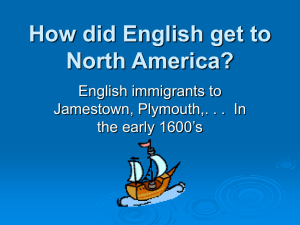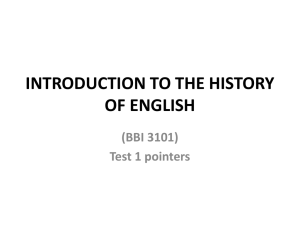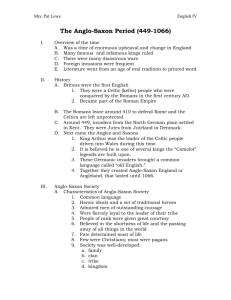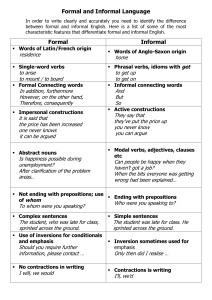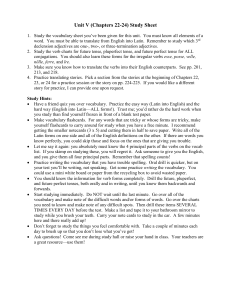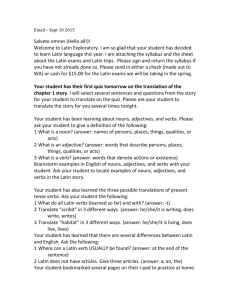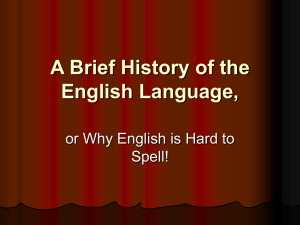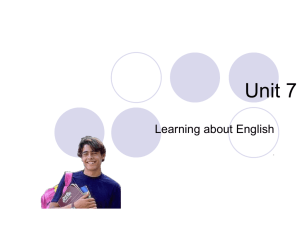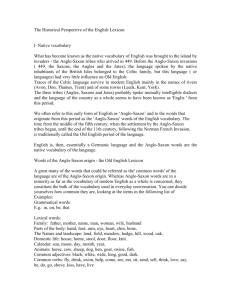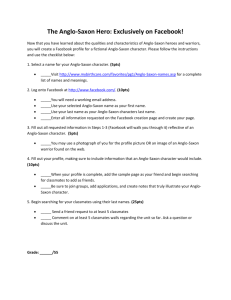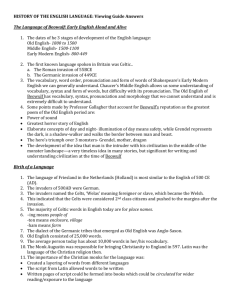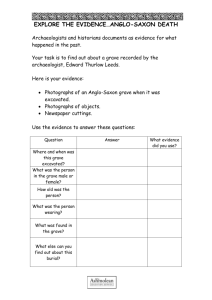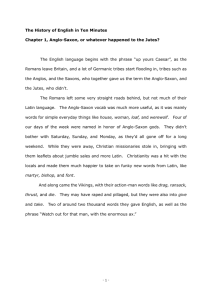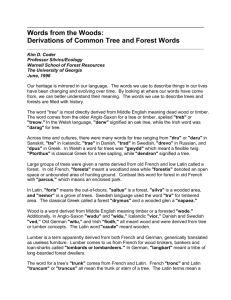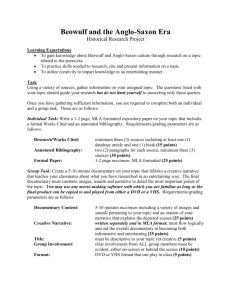FORMAL V
advertisement
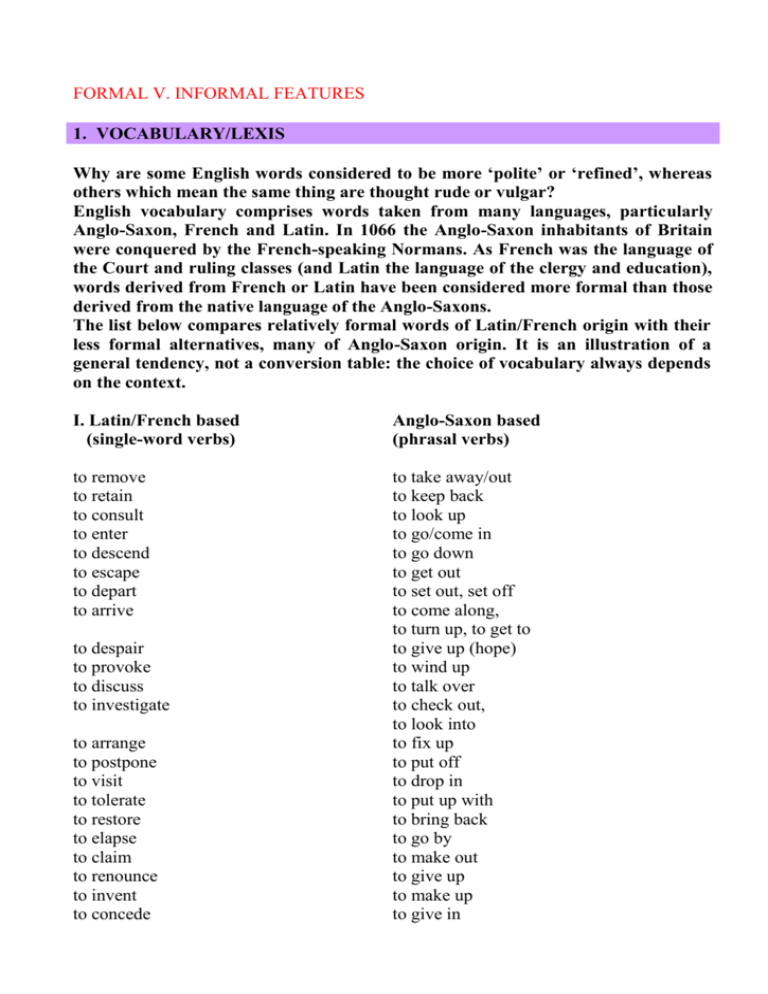
FORMAL V. INFORMAL FEATURES 1. VOCABULARY/LEXIS Why are some English words considered to be more ‘polite’ or ‘refined’, whereas others which mean the same thing are thought rude or vulgar? English vocabulary comprises words taken from many languages, particularly Anglo-Saxon, French and Latin. In 1066 the Anglo-Saxon inhabitants of Britain were conquered by the French-speaking Normans. As French was the language of the Court and ruling classes (and Latin the language of the clergy and education), words derived from French or Latin have been considered more formal than those derived from the native language of the Anglo-Saxons. The list below compares relatively formal words of Latin/French origin with their less formal alternatives, many of Anglo-Saxon origin. It is an illustration of a general tendency, not a conversion table: the choice of vocabulary always depends on the context. I. Latin/French based (single-word verbs) Anglo-Saxon based (phrasal verbs) to remove to retain to consult to enter to descend to escape to depart to arrive to take away/out to keep back to look up to go/come in to go down to get out to set out, set off to come along, to turn up, to get to to give up (hope) to wind up to talk over to check out, to look into to fix up to put off to drop in to put up with to bring back to go by to make out to give up to make up to give in to despair to provoke to discuss to investigate to arrange to postpone to visit to tolerate to restore to elapse to claim to renounce to invent to concede to diminish to fall off II. Uncommon words Common words A) Verbs to purchase to obtain/procure/receive to cease to function to masticate to demonstrate to deteriorate to reside to abbreviate to terminate to assist/aid to commence to desire/require to liberate to consume to buy to get to stop to work to chew to show to get worse to live to shorten to end to help to begin to want to free to eat B) Nouns carnivore putrefaction deficiency vision residence respiration somnambulist comprehension perspiration meat-eater rot lack sight home breathing sleep-walker understanding sweat C) Adjectives incorrect amiable vacant insane inexpensive vivacious superior infantile wrong friendly empty mad cheap lively better childish sufficient entire senior enough whole older D) Adverbials subsequently principally consequently initially finally next/later mostly so at first in the end 2. Punctuation Unabbreviated words Abbreviated and contracted forms I will we would will not as soon as possible memorandum I’ll we’d won’t a.s.a.p. memo No exclamation marks or dashes Any type of punctuation 3. Grammar I) Passive forms Active forms Cfr. A meeting has been scheduled for 3 October 2005 at 11 a.m. We’ve set a meeting for 3 Oct at 11 a.m. II) Impersonal forms Personal forms It is said that… It is possible to consider the results from another viewpoint. They say that … We can consider the results from another viewpoint. It is not clear why such terrible I can’t understand why they put up conditions were tolerated for so long. with such bad conditions for so long. It seems that this is an effective plan. We think this is an effective plan. III) Noun phrases (nominalisation) Verb phrases (verbalisation) The President’s speeches were rather unintelligible. The P. was talking rubbish. His tone of voice revealed that …. You could tell from his voice that..... My findings are outlined below. I’ve described/set out/written below what I’ve found. . Is happiness possible during unemployment? Can people be happy when they’re out of a job? After clarification of the problem areas…. When the bits everyone was getting wrong had been explained… IV)Not ending with prep. Ending with prep. To whom were you speaking? Who were you speaking to? V) No, none Not any I have no money. I haven’t got any money. I see no reason… I don’t see any reason… VI) Complex sentences Simple sentences Subordination - Coordination – Although/because/if/ when, etc. and/but/so/for/thus Although cruises round the Mediterranean are fairly expensive, they seem to be very popular. Cruises around the Mediterranean are fairly expensive, but they seem to be very popular. VII) Use of inversion Inversion only for emphasis Should you require further information… Only then did I realise…
